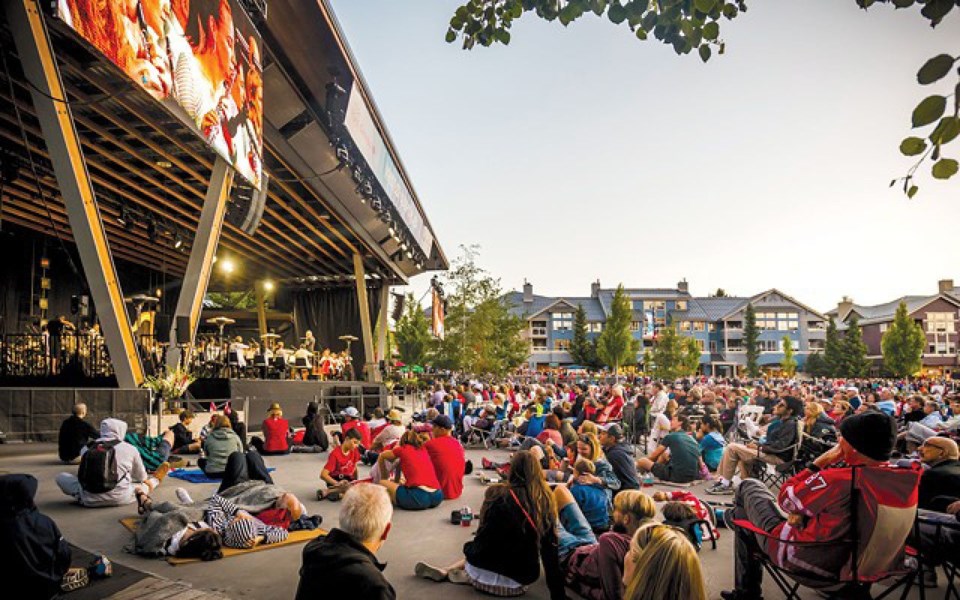The numbers are in, making it official: Whistler posted yet another record-breaking summer in 2018.
Covering May 1 to Oct. 31, Tourism Whistler (TW) said visitation was up three per cent over last year, driven largely by strong late-season and midweek bookings.
"Where we're growing is where we have capacity: in those shoulder-season months," explained Karen Goodwin, TW's vice-president of destination and market development.
Goodwin said visitation for September, when Whistler hosted the annual Union of B.C. Municipalities Convention, was up five per cent, while October, which saw a string of warm-weather days, was up 16 per cent. That helped counteract flat visitation numbers in May and June, which were down one per cent.
In recent years, TW has placed added emphasis on driving early- and off-season bookings to help offset visitation in Whistler's busiest periods. According to Goodwin, those marketing efforts are paying off.
"Our objective is to get people to think about (their trip) earlier and book earlier to get the best value. We do that both in winter and summer, but summer has definitely started to see some good impact there," she said.
Visitation from the regional market was flat over the summer, Goodwin noted, while the destination market grew by seven per cent, bolstered primarily by the American visitor. TW reports that U.S. visits rose 10 per cent, which "got us back to levels we saw prior to the 2008 financial crisis," Goodwin said, adding that favourable exchange rates and a growing awareness of Whistler as a summer destination were likely contributing factors. Visits from Ontario and Mexico were also up, although TW did not provide specific figures.
Also notable was a seven-per-cent decrease in day visits, which likely speaks to TW's efforts to drive longer stays and midweek bookings.
Amy Huddle, president of the Restaurant Association of Whistler, said that the restaurant sector saw a "super-strong" September that reiterated how short the resort's shoulder seasons have become.
"I'm seeing a lot of staff that would normally take two months off in the fall now taking a two-week vacation, simply because the money is still good and still coming in," she said. "The old-school mentality that we've got two months in the fall to do nothing but travel and go on vacation is kind of gone."
The shortened slow season presents challenges particularly to those restaurants that tend to see higher turnover, Huddle suggested.
"I think it's really stressful for seasonal restaurants, those that have a lot of seasonal employees and turn over their staff quite often," she said.
Huddle said Whistler's restaurant sector would benefit from a streamlining of Canada's federal Temporary Foreign Worker Program, and suggested, as others have, that Ottawa grant Whistler and other resort areas a special designation that recognizes those communities' reliance on foreign workers.
"Whether it be ski instructors or food workers, we need a special designation that makes the system much more streamlined," she said.
Of course, no conversation about staffing in Whistler can avoid the subject of housing. Saad Hassan, president of the Hotel Association of Whistler, believes that all the talk about the resort's lack of affordable accommodation has created another issue for employers.
"I think where we really feel (the pressure) is getting staff to the resort. We've certainly beaten the drum so much about housing, housing, housing ... I fear that if we beat that drum so much, they won't come to Whistler, they will go to other resorts," he said.
Hassan believes that, at least in the hotel sector, which has historically led the charge in providing staff accommodation, the worry over Whistler's housing crisis may be overblown.
"One of the hotels was telling me that they had (staff) beds available throughout the summer, but they did not have staff. So you can see that right there as a clear, tangible example that the challenge is not just the housing, it's trying to get the people to come here and experience the resort."




